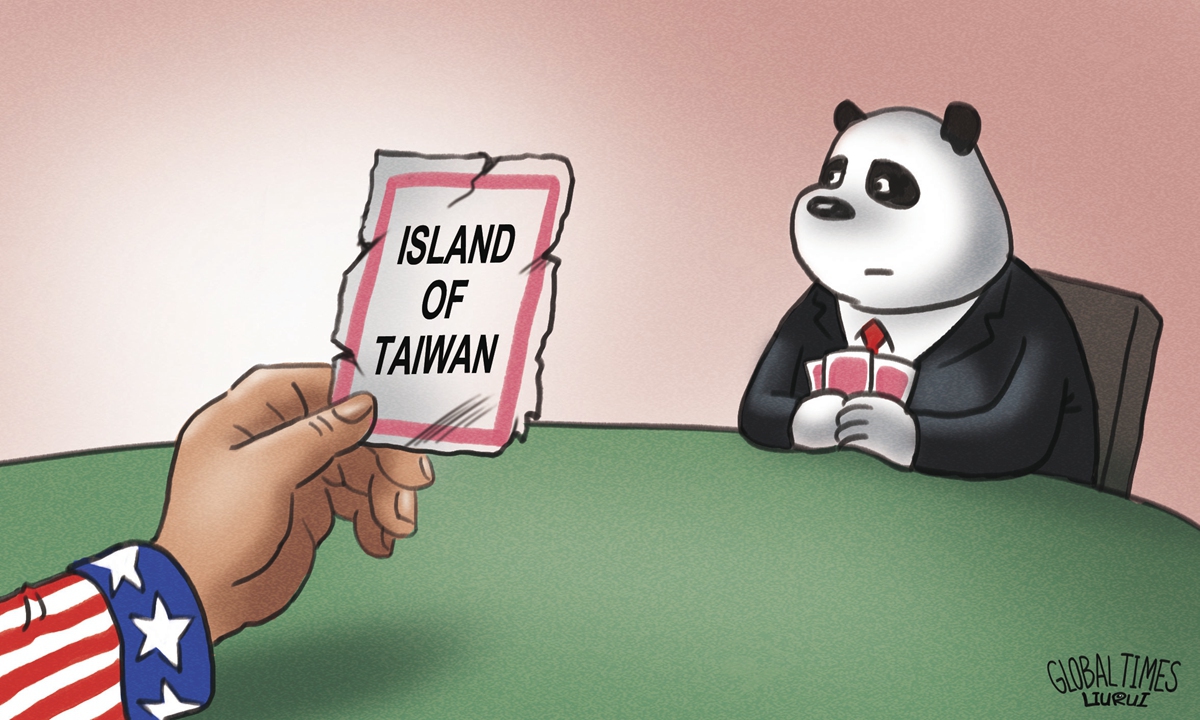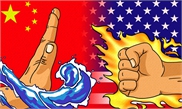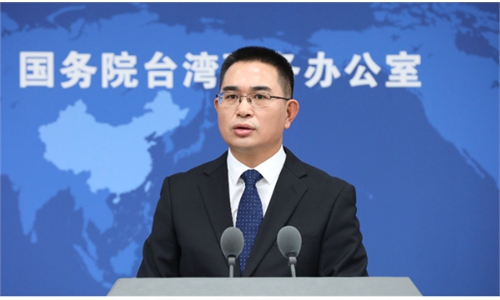Beijing will act more swiftly, accurately, powerfully to strike those arming Taiwan painfully: Global Times editorial

Illustration: Liu Rui/GT
In response to the new round of US arms sales to China's Taiwan region and various sanctions imposed on Chinese companies and individuals under various pretexts, Beijing has introduced countermeasures. The Chinese Ministry of Foreign Affairs announced on Sunday that China has decided to impose sanctions on five US defense companies. The countermeasures consist of freezing the properties of those companies in China, including their movable and immovable property, and prohibiting organizations and individuals in China from transactions and cooperation with them. This means that a world-class market is closing its doors to them. In addition to suffering direct losses, they have been left with a permanent stain on their records in China. Losing the opportunity to cooperate and develop in the future with the mainland market is definitely not a trivial matter for any business company.Arms sales to Taiwan are one of the most direct, deplorable and dangerous ways for the US to intervene in the Taiwan question, and are a concentrated manifestation of the US' violation of the one-China principle and the three China-US joint communiqués. Over the past 45 years since the establishment of diplomatic relations between China and the US, the US has periodically launched rounds of arms sales to Taiwan, totaling over 100 rounds to date. These sales have become a "severe illness" that irregularly strikes and seriously undermines the health and stability of China-US relations. In recent years, the incidence of this disease caused by the US has increased significantly, and the symptoms have worsened. The weapons sold to Taiwan are not only expanding in scale, but also constantly surpassing performance limitations and becoming more aggressive. The pace of the US' "arming Taiwan" strategy through arms sales is obviously accelerating, posing a great threat to the peace and stability of the Taiwan Straits.
The most recent arms sale by the US to Taiwan was announced in December, and it is a $300 million sale of equipment to help maintain Taiwan's tactical information systems. One month before that arms sale, the heads of state of China and the US had just met in San Francisco in November. During the meeting, China asked the US side to reflect its statement that it does not support 'Taiwan independence' in specific actions and stop arming Taiwan. The US, for its part, reaffirmed the US government's long-standing one-China policy, and stated that the US does not support "Taiwan independence." Just a month later, with the promise made at the summit still ringing in our ears, the US approved a new round of arms sales to China's Taiwan region. This not only reflects its failure to keep its words, but also reveals its usual face of interfering in the internal affairs of other countries and undermining regional peace.
Beijing strongly opposes the US arms sales to Taiwan. It needs to be emphasized that this opposition will not only remain in words. China's capabilities to strike substantive countermeasures are continuously strengthening, measures are constantly improving, and the countermeasures are becoming faster, more precise and powerful. Compared to the previously sanctioned Lockheed Martin and Raytheon missile and defense companies, the five military-industrial enterprises sanctioned this time are not well-known, but they have also been targeted and sanctioned by us, reflecting the precision of China's countermeasures. Making all entities that harm China's national interests pay the price has become an integral part of China's national deterrence. China will continue to develop its capabilities and means to inflict pain on them.
The reason why the US is unwilling to give up arms sales to Taiwan is because it does not want to give up its means of interfering in the Taiwan Straits. The US strengthens arms sales to Taiwan in a unilateral attempt to narrow the military power gap between the two sides of the straits and even establish a so-called balance. However, this is wishful thinking. The mainland's overwhelming military advantage over Taiwan is irreversible. If Taiwan island is truly turned into a "porcupine," it will inevitably put the people on the island in danger and dim the hope for peaceful reunification. The pace of achieving reunification is bound to accelerate. The ultimate reunification of the two sides of the straits is an irresistible trend, and any attempt to obstruct it will not succeed.
The Taiwan authorities spend a significant amount of money each year on purchasing weapons from the US, which only gives a false sense of comfort and encouragement to the "Taiwan independence" forces. This money could have been used for improving Taiwan residents' livelihoods. A Chinese character meaning "shortage" won the accolade for character of the year 2023 in Taiwan, followed by the characters "egg" and "scam" in second and third place. Taiwan lacks water, electricity, labor, land, talent, medicine, and eggs... but not weapons and fraudsters. What the Taiwan island truly needs is not provided by the US, while what it does not need is being offered.
Opposing "Taiwan independence" is a solemn commitment made by the US to China, but selling weapons to Taiwan sends the wrong signal to the "Taiwan independence" forces, ultimately providing support and encouragement to them. As long as the US continues arms sales to Taiwan, the desire for "Taiwan independence" will persist. This has become a dark transaction between the Democratic Progressive Party's "selling out Taiwan" and the US' actions of "harming Taiwan" and "destroying Taiwan."


